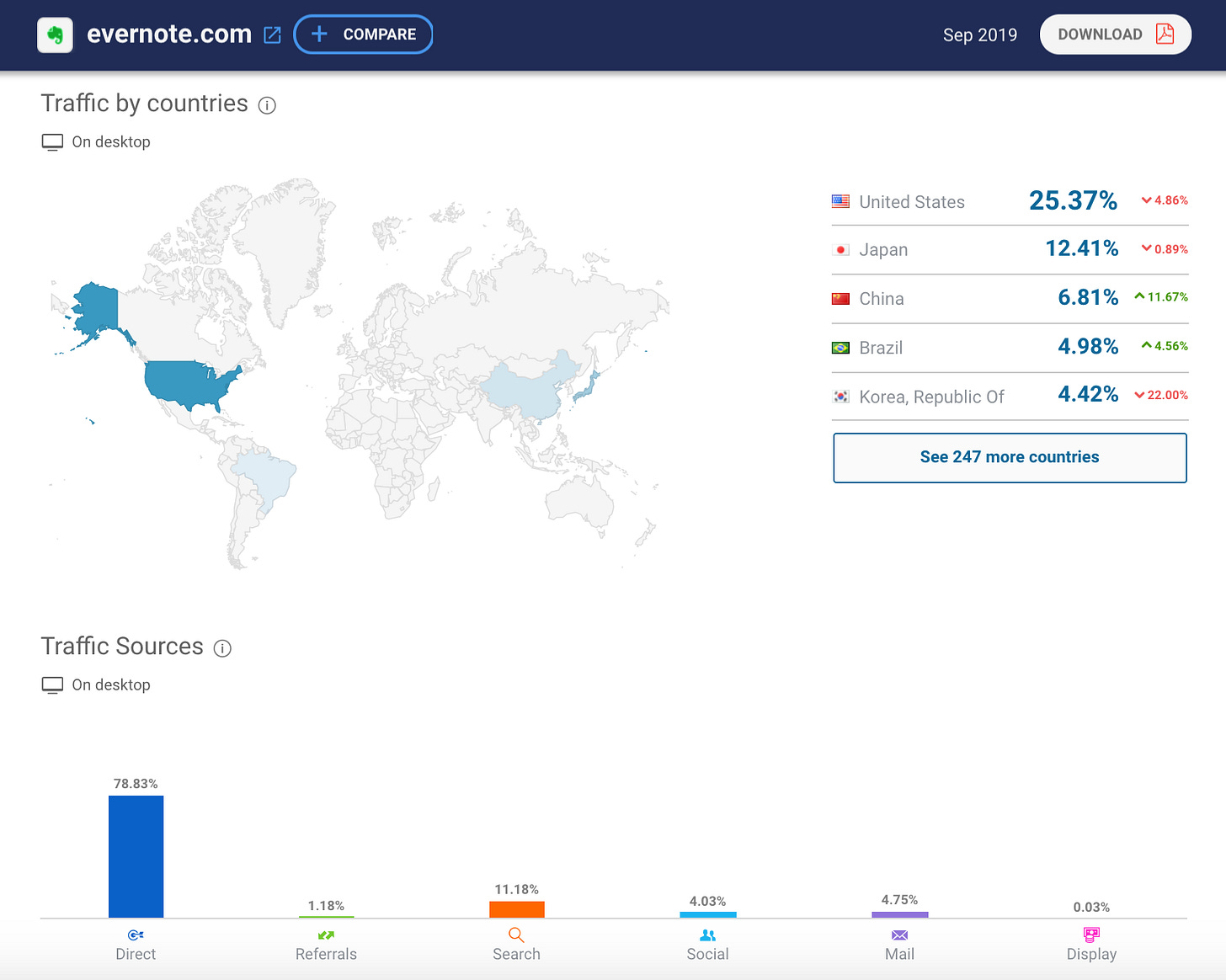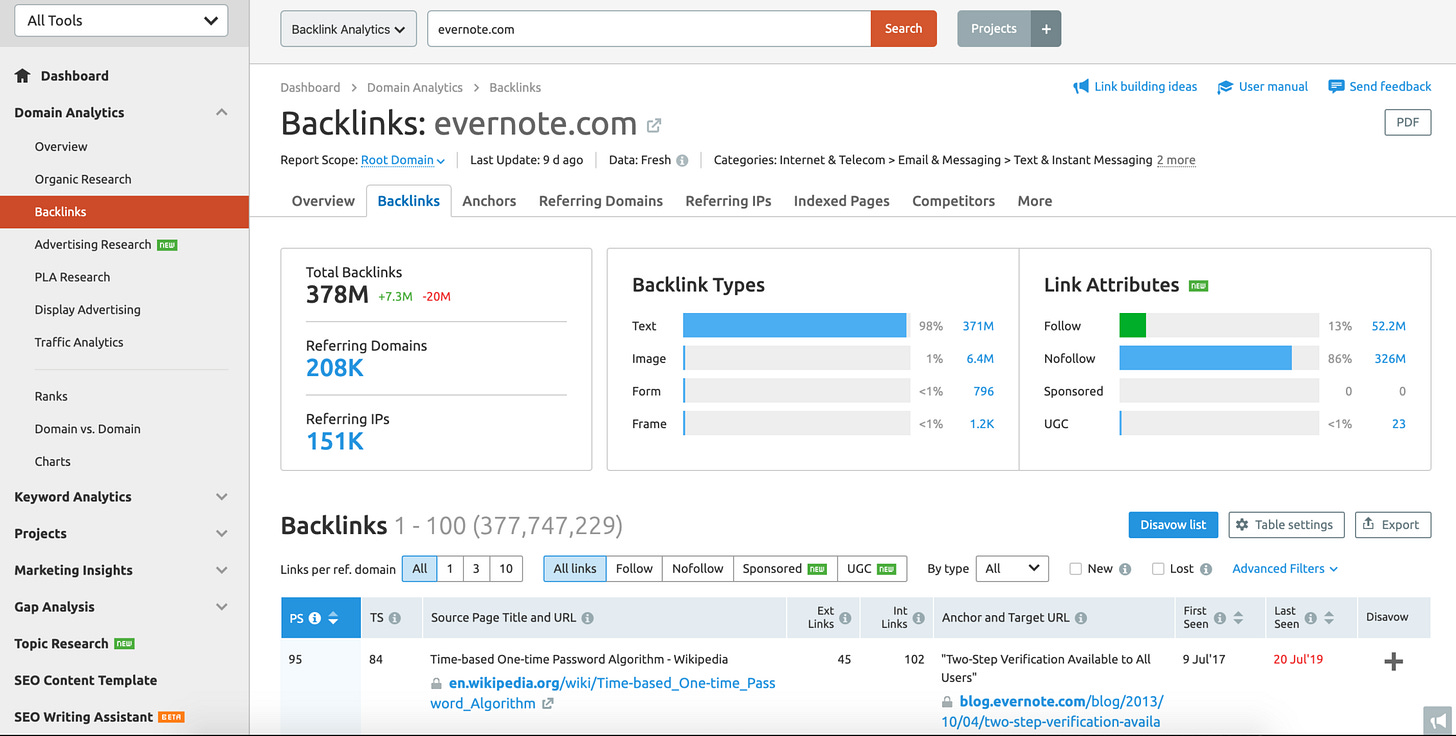SEO for Early-Stage Startups
Is SEO worth the effort for startups?
Search Engine Optimization (SEO), the practice of improving your rankings for relevant search terms on search engines, remains predominantly negatively perceived by startups despite its proven effectiveness to drive traffic and leads.
Growth marketing expert Andrew Chen, ex-Uber and now General Partner at Andreessen Horowitz, recently tweeted:
I agree with Andrew, SEO takes time and shouldn't be the focus channel early-on. However, I believe that startups can use the SEO methodology to inform their go-to-market strategy, improve their product, and survive longer.
Here below are 8 ways SEO can help early-stage startups.
1. SEO can help startups to verify market needs
According to data from CB Insights, tackling problems that are interesting to solve rather than those that serve a market need, is the No. 1 reason startups fail.
Keyword research, the process of understanding what people are searching for online, is one of the starting points of any SEO strategy. With the help of tools like Google Keyword Planner, Google Trends, or SEMrush you can easily gather data that will help you to identify clear market needs.
Throughout this blog post, I will use the example of a fictive "note-taking" startup going against industry incumbents like Evernote and Onenote. To verify market needs, volumes, and current behaviors, this startup could use SEMrush.
2. SEO can help startups to identify a viable go-to-market strategy
Lack of focus is another big reason why startups fail. Even if you identify a big market for your product, it's crucial to choose a good starting point so you don't dilute your efforts.
In SEO, we distinguish between generic keywords and long-tail keywords that are more specific topics (generally with lower search volume and competition). Going for the long-tail is a smart approach for startups with limited resources.
From the example above, our fictive notetaking startup could decide to focus on college students first as there seems to be a demand for "how to take notes in college".
They could then refine their search around this query using a tool like Ubersuggest and look for more similar terms. Note that this will also help you to understand seasonality in your market. Here obviously, the "back to school" season is key.
3. SEO can help startups to build a compelling value proposition
Great, now you know if there is a market for your product. But what features should you prioritize for your MVP?
Sure, you could ask questions to a few beta testers. But will they be objective? Is the group representative?
Instead (or in combination), you could use SEO tools like Answer The Public to list and analyze the most asked questions within your niche. This can help you to gain empathy with your target audience and prioritize key features that the market is already asking for.
4. SEO can help startups to win market share against incumbents
Regardless of your industry, competing with incumbents will be a challenge. And as an early-stage startup, you will lack the resources to go head-to-head with them.
But you could win some strategic battles thanks to SEO.
a. Alternatives
It's a basic human trait: people love to have many options.
A simple Google search with "alternative to (competitor)" for your niche will list the options people are already looking for.
In our example, people are actively looking for alternatives to replace Evernote or Onenote—the current market leaders.
From there, you could either try to convert them with your own website (Notion example below) or try to be featured on comparison websites (often affiliates), blogs, or directories.
b. Pareto principle
In a David versus Goliath scenario, startups should hurt the core of their incumbents' visibility. In other words, targeting 20% of their activities accounting for 80% of the results.
It can be challenging to identify how much competitors spend on Facebook ads (you can find their assets but not their budget with Ads Library) but you can easily analyze their organic and paid visibility on Google with SEMrush. Look for keywords or backlinks that have a disproportionate impact on their traffic.
In our example, Onenote gets more than 25% of their organic traffic from the single keyword "notebook".
Trying to rank for a very competitive keyword with a newly launched website would be mission impossible and would totally go against what I recommended above.
However, you could spend some time looking at the type of results featured for that search query. Could you be one of the Google Image results? Are there any YouTube videos or podcasts? Are there any Answer boxes, Tweets, or news? Are there any affiliate sites or blogs you could win over?
Search for small wins with a large potential impact.
c. Gaps
The Internet is fragmented and your competitors are probably not winning on all channels. With tools like SimilarWeb, you can identify gaps in their marketing mix.
These insights could help you make strategic decisions on the right markets and digital channels to focus on.
For example, here is Evernote's traffic by country and source. Do you see any gaps?
5. SEO can help startups to build a user-friendly experience
CB Insights' data reveals that the #6 reason why startups fail is because of user un-friendliness.
User experience is critical to SEO. All major search engines use factors like load time, responsiveness, architecture, reviews, and engagement to judge one's website or app.
Google offers free tools like PageSpeed Insights, Google Search Console, and Mobile-Friendly Test to help you there.
6. SEO can help startups to establish their brand online
As your brand takes off, more and more people (from potential users to potential investors) will Google your brand.
If you chose a domain that isn't too generic or doesn't mean something else (movie, personality, slang...) it should only take a few days or weeks to rank for your brand name.
But what most startups ignore is that they can work actively to secure more real estate on their brand results thanks to Google's structured data and some common sense.
Here is a non-exhaustive list of results that generally rank well on Google (for branded queries) that you can leverage.
Google My Business listing (add images and posts)
YouTube videos (use your brand name in the title)
Images (use your brand name in alt tags)
Social profiles (match domain and handles)
Wikipedia (if eligible)
Press and Tweets
7. SEO can help startups to build relationships within their industry
Since the late 1990s, search engines have treated links as votes for popularity and importance on the web (Moz).
Link building, the process of getting other websites to link back to your website is, therefore, one of the most important tasks in SEO. It requires a combination of various marketing and sales skills and can be a great exercise for startup founders who are looking to build and nurture long-lasting relationships within their industry.
With tools like Ahrefs, SEMrush, Buzzsumo, or Sparktoro, you can identify link-worthy domains, topics, or industry influencers around a specific keyword or competitor.
Back to our example, we could research the links pointing to Evernote, or journalists and influencers mentioning them and explore opportunities for partnerships and inclusions.
Done well, link building can bring a large amount of traffic and sales but also quickly increase your industry authority.
8. SEO can help startups to limit burn rate and extend their runway
CB Insights list "running out of cash" as the killer for 29% of startups (#2). Most startups in the early stages, spend more than they make. Even if raising capital allows to operate at loss for some time, the runway doesn't last forever.
According to data from Brex, 20% of startups' burn rate goes towards advertising with the main cost being Facebook ads accounting for 62% of these expenses.
Relying on paid channels to grow when the cost of digital advertising is rising at rates close to 5x inflation (Adobe) isn't sustainable. It needs to be offset by growth coming from organic channels like SEO, social, brand building activities, but also integrations, product-baked viral referral loops, and supported by strong retention and activation cohorts.
It's crucial for startups to harvest the organic traffic they can get through SEO in order to avoid paid marketing addiction.
Results from SEO can take months, especially for new sites, and early-stage startups often don't have the luxury to wait.
But understanding SEO can be remarkably insightful, provide some initial traction with the right approach, and help to avoid some of the most common startup pitfalls.
I think it's important to see SEO as an investment, not a cost. Like compound interest—the earlier you start, the better!














